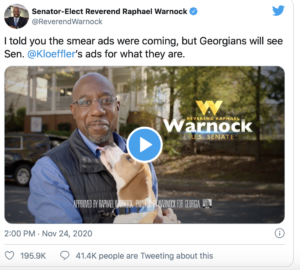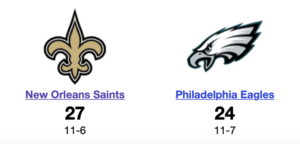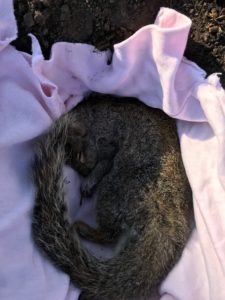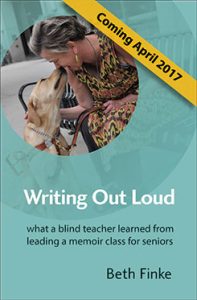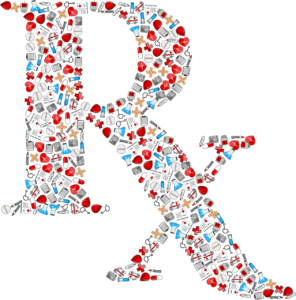Mondays with Mike: Familiarity breeds enlightenment
January 11, 2021 • 6 Comments • Posted in guide dogs, Mike Knezovich, Mondays with Mike, politicsBoy, last Monday sure feels like a long time ago. What a week.
Having finally gotten my blood pressure down, I’m not going there. Instead, let’s talk about the happy subject of dogs. And the complex subject of race. Bear with me, there is an intersection here.
Start with dogs. Back in December WBEZ aired an episode of 1A, a news magazine show produced by WAMU in Washington, D.C., that was devoted to the great growth in pet ownership, especially dogs, during the pandemic. It’s a pretty good listen.
Overall, pretty interesting stuff, including discussion about how Rafael Warnock, the Black pastor who won a Senate seat in Georgia last week, was running a successful political ad featuring him and his pet Beagle. Apparently there are perceptions about certain breeds being white-people dogs, including Beagles. And that there are notions that idealize the loving relationships that white people have with their dogs while sort of dismissing that possibility for Black people. It’s a little bit of a stretch, but one of the panelists made a pretty good case.
In any case, the Beagle ad must have worked. (It’s brilliant, by the way.)
The program included several panelists, including Laurie Williams, a certified dog trainer who happens to be black. Jen White, the host, asked the trainer, “Can dogs be racist or biased?
A funny question maybe, but the trainer said she is frequently asked by white dog owners whether their dogs are indeed, racists, because they’re agitated when they’re around Black people.
“They don’t know what race is,” Williams said about dogs. “They know what they are familiar with. The best thing to do is for people to get out, and let their dogs be around other people.”
Williams says that when a white client says they think their dog is racist, she asks, “Well, how do you feel about Black people?” And typically, the client is taken aback — before realizing there are no Black people in their inner circle, and therefore their dog is rarely around Black people. The trainer encourages those clients to broaden their inner circle in order to better socialize their dogs (and perhaps themselves, though she didn’t say that in so many words).
And I concluded that, on this score, I’m like the dogs the trainer talked about. That is, I routinely find myself in situations that, if I’m honest with myself, would’ve made me uncomfortable back when we moved to Printers Row in 2003. Like being the only white guy on a packed subway car. Having an honest and difficult conversation with Black friends at the bar. I thought I was fairly enlightened about race back in 2003, but I wasn’t.
I’m still working at it, but I’ve come light years, simply by living with, working with, and talking with Black people routinely. And also, from the rich oral histories that Beth’s Black memoir writers are good enough to share.
To be clear, Chicago is renowned for its segregated housing (as are many cities) but I’ve never lived a more integrated day-to-day life anywhere. That’s partly a numbers phenomenon—30 percent of Chicago’s population is Black. Our particular zip code includes roughly 20 percent Black residents. (Nationally, Black people comprise 14 percent of the U.S. population.”
So, an old dog can learn new tricks, and I’m still learning.
